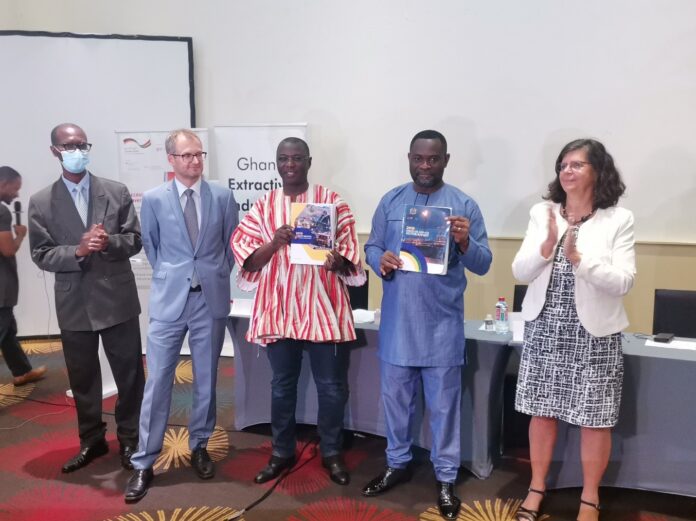
Deputy Finance Minister, John Ampontuah Kumah, has reiterated government’s strategy to pursue the agenda of increasing its stake in some of the mining and oil and gas companies.
He made this known during the launch of the 2019 Ghana Extractive Industry Transparency Initiative (GHEITI) reports for the mining, oil and gas sectors last week.
“It is part of government policy to deliberately increase our stake in some of the mining and oil and gas companies, especially where foreign companies are seeking to exit from the Ghana market; government is taking advantage to increase our shareholding in some of these companies.
As a small producing country, we are also taking measures to increase our stake in producing fields to generate more revenue for the state, and to support GNPC’s [Ghana National Petroleum Corporation] operations,” the deputy finance minister said.
Accordingly, GNPC has successfully Increased its Commercial Interest in both the Jubilee and TEN blocks, from Occidental Petroleum for a purchase price of US$199million, which was effective April 1, 2021, alongside an ongoing negotiation to increase the country’s shares in the Aker energy and AGM blocks.
The acquisition adds to GNPC’s existing carried and participating interest of 13.64 percent in the Jubilee field, and the 15 percent in the TEN field.
Contribution from extractives
From the oil and gas sector, total revenue of US$ 666.39million was accrued to the State in the year 2020 from Royalties, Carried and Participating Interest (CAPI), Corporate Income Taxes (CIT), and Surface Rentals.
The deputy minister said government also received US$225,301 as income earned on the Petroleum Holding Fund (PHF). This total receipt contributed seven percent of the total domestic revenue for 2020.
In 2020, a total of 88,515.58 million Standard Cubic Feet (MMSCF) of associated gas and non-associated gas produced from Jubilee, TEN and SGN fields were supplied to various thermal plants in Ghana for domestic power generation. A total of 580,034.37 MMSCF has so far been produced from 2014 to 2020, and has been solely utilised for domestic power generation in Ghana.
The mining sector currently contributes approximately 41 percent of total exports earnings, 14 percent of total tax revenues, and 5.5 percent of Ghana’s Gross Domestic Product (GDP). Gold contributes over 90 percent of Ghana’s total mineral exports and makes up 49 percent of the country’s total export value. Ghana is the leading African gold producer, with a total mine production amounting to 150 metric tonnes as at the end of 2020.
With regards to the mineral royalty receipts, its share in total fiscal receipts attributable to the mining and quarrying sector increased from 25.1 percent in 2019 to 33.3 percent in 2020.
The Bank of Ghana’s statistics on merchandise exports show that the minerals sector accounted for 48.4 percent of gross exports receipts in 2020, which was more than the combined contribution of cocoa and crude oil to merchandise exports.
GHEITI Report
So far, Ghana EITI, with the support of the Multi-Stakeholder Group (MSG), has produced 16 EITI reports in the mining sector and nine reports for the oil and gas sector.
“The findings and recommendations from these reports are very vital. Government has responded to some of the policy calls in the extractive sector. The recommendations of the EITI reports have informed policy direction and decision-making in the legislative, fiscal and institutional dimensions of the mining, oil, and gas sectors,” the deputy minister said.
The EITI seeks to create that missing transparency and accountability in revenue flows from the extractive industry.









